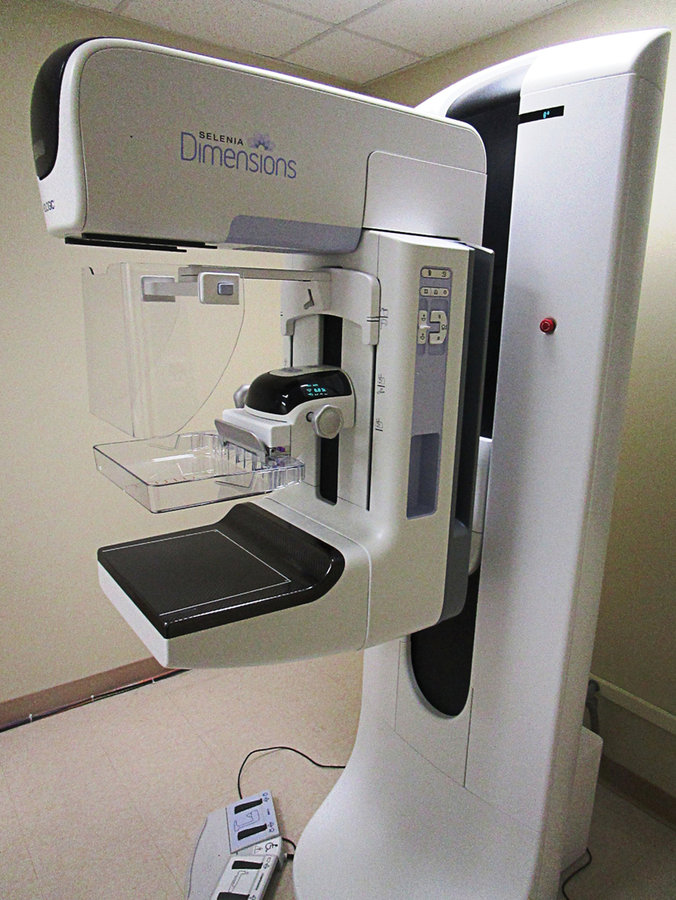Although medical science has made great strides over the last few decades in helping to detect breast cancer early, the latest innovation at Christ Hospital is expected to help even more.
CarePoint Health has unveiled a $500,000 3-dimensional mammogram machine that could improve breast cancer detection by as much 50 percent.
Breast tomosynthesis produces a three-dimensional view of the breast tissue that helps radiologists identify and characterize individual breast structures without the confusion of overlapping tissue.
“We believe breast tomosynthesis will benefit all screening and diagnostic mammography patients, and is especially valuable for women receiving a baseline screening, those who have dense breast tissue, and/or women with a personal history of breast cancer,” said Dr. Robbi Kempner, director of CarePoint Health’s Breast Center. “We anticipate equipping our sister hospitals Bayonne Medical Center and Hoboken University Medical Center in the future.”
A big advance over traditional mammograms
According to assemblywoman and x-ray technician Angelica Jimenez, the new machine offers a significant advance over the traditional 2-dimensional mammogram machine, although both will be used together.
Images from standard mammograms can be deceptive at times, showing up ghost images rather than actual tumors.
In these cases, the 3-dimensional unit can be used to better define the suspected area, and give doctors a more precise image.
Jimenez said the new machine actually moves in order to provide layer-by-layer imaging.
“The traditional mammogram doesn’t move,” she said.
“We can detect tumors at an earlier stage and when they are smaller in size.” – Vivek Masson
____________
Kempner said the new system allows for fewer additional tests, since it provides a better view of the suspected area.
“We can detect tumors at an earlier stage and when they are smaller in size,” said CarePoint Health Medical Director of Radiation Vivek Masson, noting that early detection leads to more positive treatment outcomes. “With the 3-D technology, there are fewer callbacks and more comfort for the patient.”
Having the technology in Hudson County also means that people do not have to leave the area in order to take advantage of what will soon become a standard of care, according to CarePoint Health Medical Director of Radiation Vivek Masson.
Jimenez said women need to have regular mammograms when they reach 40 years old, and over the last few decades modern technology has reduced the radiation levels.
The new machines like the traditional 2-D machines provide low-dose radiation, said Marie Duffy, CarePoint Health’s chief operating officer.
Helps meet mandate set by state law
Kempner said the new technology is particularly useful for women with what are called “dense breast tissue,” which sometimes is difficult to read using traditional mammogram equipment.
New Jersey, she noted, passed a mandatory review law in 2014 requiring added imagery for patients with dense breast tissue.
Kempner said the new device will drastically improve the rates for all screening and diagnostic mammography patients. She said detection using the machines in most cases can improve between 30 to 47 percent.
By offering women this advanced technology, CarePoint officials hope to increase the number of women in the region who will seek routine screening.
Breast cancer is the second leading cause of cancer deaths among women. Statistics show that one in eight women will develop breast cancer at some point in their lifetime. The stage at which breast cancer is detected influences a woman’s chances of survival. If detected early, the five year survival rate is 98 percent.
“We are excited to implement this new technology that gives us an additional tool to find breast cancer early and begin treatment,” said CarePoint Health Chief Medical Officer, Dr. Nizar Kifaieh.
Al Sullivan may be reached at asullivan@hudsonreporter.com.
